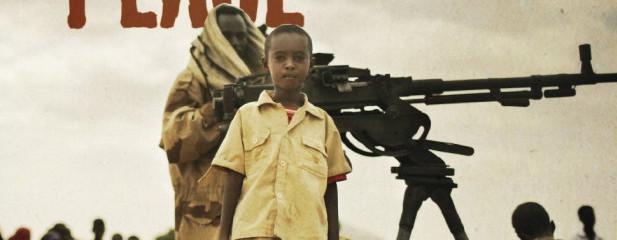Saviors and Survivors
Mahmood Mamdani’s Saviors and Survivors: Darfur, Politics, and the War on Terror, is the most ambitious book yet on the Darfur crisis. Unlike the vast majority of other writing on the crisis, which is political science, human rights or ethnographic narrative, specific to the Darfurian or the Sudanese situation, Mamdani places Darfur in deep and broad world-historical contexts.
The historical account is deep in that Mamdani sees the Darfur war less as the outcome of the immediate political grievances of Darfurians and the Sudan Government’s specific objectives, but rather as the product of long encounter between the colonial and neo-colonial powers and Africa. His account describes how under the independent Sultanate, Darfurian society was adopting administrative and social structures that transcended and down-played ethnic identities, but the colonial encounter””brief but profound””created administrative tribalism and a racial hierarchy. Mamdani argues that the legacy of this intrusion and distortion, as it played out especially in the system of land ownership based on tribally-owned dars, can be seen in the recurrent internal wars in Darfur from 1987 to 1999 and the wider war that erupted in 2003.
In this account, we see common threads from Mamdani’s previous books. Citizen and Subject dealt with how European colonialism imposed concepts of tribe and race on Africa, generating specific oppositions and tensions, for example between those labeled as “˜natives’ and “˜settlers.’ When Victims Become Killers developed the account for Rwanda, tracing the legacy of European imperialism in the social, economic and ideological construction of eliminationist violence. The “˜survivors’ of Mamdani’s Darfur book are the people of Darfur (and Sudan in general) who struggle to retain agency amid a comparable history, written by powerful outsiders using the language of race and tribe in pursuit of colonial and Cold War interests.
The historical account is broad in that it brings to bear some of the great issues of our day””American power during the age of the War on Terror””on Darfur. Again, a dichotomizing, even Manichean worldview imposed by a global power, determines events in a distant land. In this, we see continuities from Mamdani’s Good Muslim, Bad Muslim“”the “˜bad Muslims’ in this case being the Sudanese Arabs, both the rulers in Khartoum and the Darfurian Janjawiid, and the “˜good Muslims’ implicitly being the “˜African’ civilians and rebels. Mamdani sees the Save Darfur campaign as representing a refracted version of the moral logic of the War on Terror, with the Arabs in both cases branded as evil, except this time because they are genocidaires instead of terrorists. The campaign to bring international troops to Darfur and to indict the Sudanese leadership at the International Criminal Court, and the willful ignorance about the successes of the African engagement with Darfur and the changing situation on the ground, are all portrayed as the product of this agenda.
Mamdani concludes:
“For Africa, a lot is at stake in Darfur. Foremost are two objectives, starting with the unity of Africa: The Save Darfur lobby in the United States has turned the tragedy of the people of Darfur into a knife with which to slice Africa by demonizing one group of Africans, African Arabs… At stake also is the independence of Africa. The Save Darfur lobby demands, above all else, justice, the right of the international community””really the big powers in the Security Council””to punish “˜failed’ or “˜rogue’ states, even if it be at the cost of more bloodshed and a diminished possibility of reconciliation. More than anything else, “˜the responsibility to protect’ is a right to punish but without being held accountable””a clarion call for the recolonization of “˜failed’ states in Africa. In its present form, the call for justice is really a slogan that masks a big power agenda to recolonize Africa.”
Is Mahmood Mamdani right? He is certainly correct that “˜For Africa, a lot is at stake in Darfur.’ The arguments whereby he reaches this conclusion””and the other conclusions in his bold book””are certain to be controversial. Over the next few weeks we shall be hosting a debate on Saviors and Survivors.






Dear Alex
Thank you very much,I think Dr.Mamdani raises an important point that,as you say,desrves the attention of each and all,i would add,that “For Africa,a lot is at stake in Sudan”,and not only Dar Fur.I look forward for the debate.
Mamdani is debating John Prendergast of Enough! at Columbia University tomorrow at 6pm. A must-see for anyone interested in his arguments! It will be interesting to see how Mamdani’s insistence on acknowledging the full context of the conflict can be articulated against what I imagine will be the urgent and emotionally captivating language of an experienced advocate.
You can watch the Mamdani-Predergast debate here:
http://pulsemedia.org/2009/05/24/the-darfur-debate/